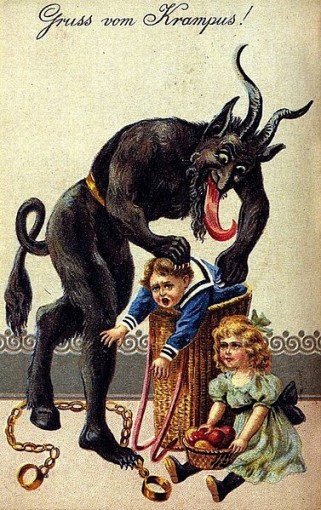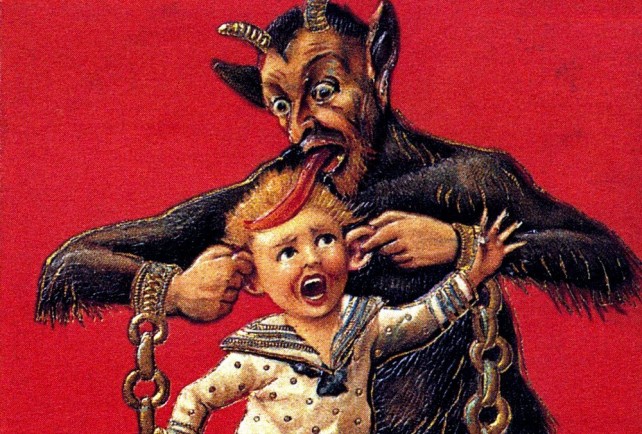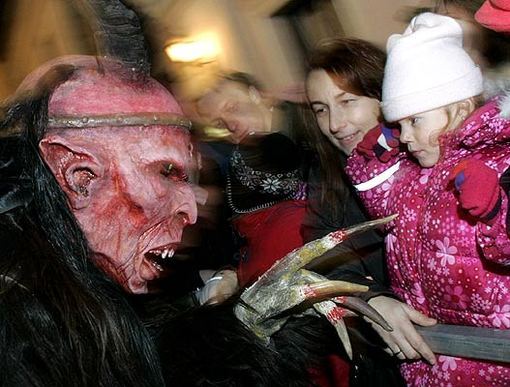In Western cultures, Santa Clause is responsible for rewarding children with gifts for their good behavior. At the same time, Santa also retains the right to cast judgment and deem bad children as “naughty” and then to withhold gifts or to give coal. In Europe’s Alpine countries, such as Austria, Southern Bavaria, South Tyrol, Northern Friuli, Hungary, Slovenia and Croatia, Santa still rewards good children, however, his evil companion, Krampus, is the figure who captures and punishes naughty children by carrying them back to his lair, or to hell, in a sack or washtub.
 The Krampus legend is believed to date back to pre-Christian times, and by the 17th century the figure had become a full-time participant in Christian winter celebrations. In the mid-20th century, Krampus was prohibited in Austria and deemed an “evil man” by the Fatherland’s Front and the Christian Social Party. I suspect the Christian concern here had to do with an evil figure being celebrated. However, Krampus returned to popularity in the late 20th century and today groups are concerned about his affect on children — heaven forbid that children get a stern and terrifying reminder that there are consequences for being bad.
The Krampus legend is believed to date back to pre-Christian times, and by the 17th century the figure had become a full-time participant in Christian winter celebrations. In the mid-20th century, Krampus was prohibited in Austria and deemed an “evil man” by the Fatherland’s Front and the Christian Social Party. I suspect the Christian concern here had to do with an evil figure being celebrated. However, Krampus returned to popularity in the late 20th century and today groups are concerned about his affect on children — heaven forbid that children get a stern and terrifying reminder that there are consequences for being bad.
Traditionally and expanded upon today, Krampus accompanies Saint Nick in the first week of December during winter celebrations. Typically, on the evening of December 5th, grown men dress up as Krampus roaming the streets and scaring children. OK, the idea of a man dressed in a hairy costume with hooven feet and goat horns, as well as rusty chains, scaring children is a bit disturbing, but it’s also highly entertaining. Oh, and Krampus often has a long, curled tongue — I’m starting to picture Gene Simmons here.
I don’t know of any horror movies featuring the Krampus, but one definitely needs to be made.
Rock Hard \m/









